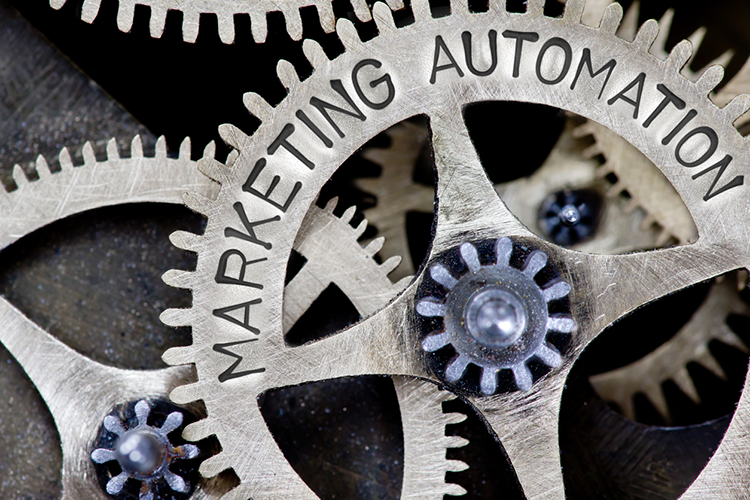In an effort to improve the effectiveness of campaigns and deliver an improved bottom line, increasing numbers of organisations are harnessing the power of marketing automation.
There are a number of drivers behind this trend. One of the biggest is an increasing desire from customers for personalised, relevant, and timely experiences rather than more traditional ‘blast’ communications. They want the businesses they deal with to treat them as individuals.
Automation can also help businesses to better deal with the rising volume of customer data that needs to be analysed and utilised. In the past this tended to be done manually, however in many cases this is no longer possible.
Businesses are also attracted to automation by the ability it provides to increase the effectiveness of digital and omnichannel marketing campaigns. This is coming at a time when there are increasing cost pressures that require marketing departments to do more with less.
A focus on personalisation
Marketing teams are coming to understand how automation tools can help with the challenge of creating more personalised communications and campaigns. The tools aid in the task of segmenting different audience groups based on various demographics so that messages can be better tailored.
Most automation platforms also enable the creation of dynamic content on websites and within emails, based on this segmentation information. The result is a much more personalised and enjoyable customer experience.
Automation platforms can also aid in tracking customers and their interactions with the business across multiple channels, from website visits to email exchanges and social media posts. This data can then be used to further personalise communications and drive better relationships.
Changing the marketing process
Marketing automation platforms provide an opportunity for a business to change its marketing process by introducing greater efficiency, personalisation, and consistency across multi-channel customer touchpoints. Three key ways in which a platform can add value are
- Automation of workflows:
Marketing automation platforms can significantly streamline repetitive, time-consuming tasks such as lead nurturing, email campaigns, and social media activity. This, in turn, provides marketers with more time to focus on strategic activities. - Improved data analysis:
The platforms also excel at analysing large volumes of customer data to help a business better understand the most effective ways to communicate with them. More personalised communication leads to improved engagement, longer-term relationships, and an increase in revenues. - Better omnichannel integration:
By aiding a business to create consistent, seamless experiences across multiple communication channels, a marketing automation platform can significantly improve the customer experience regardless of how they choose to interact with a business. Automation can also enable faster responses to customer enquiries and requests for support.
The role of AI and ML
Marketing automation platforms are continuing to evolve at a rapid rate, and many are taking advantage of the growing power of artificial intelligence and machine learning tools. These tools can turbocharge the way a business can analyse and make use of customer data, further improving the ability to personalise communications.
AI algorithms can help marketing teams to understand individual preferences and behaviour patterns, enabling even more sophisticated and personalised marketing campaigns. They can also predict which customer segments are most likely to convert, by way of their communication patterns.
AI-powered chatbots can also provide customers with instant support and personalised recommendations. This can be particularly helpful for businesses with large call centres, such as banks and telcos, as it removes the need for customers to waste time on hold before talking to a human.
AI and ML algorithms can also help to spot customers at risk of churning. This can then allow the business to proactively make an offer to them before they’re lost to a competitor.
The tools can also be used to monitor social media platforms, allowing a business to better understand how its brand is being perceived in the market and whether any changes need to be made.
Ongoing evolution of marketing automation
The power and potential of marketing automation platforms is showing no sign of stagnating and businesses can expect to achieve even more with them in coming years.
As the volume of customer data grows even further, businesses will be able to undertake even more sophisticated analytics and spot trends that may previously have gone unnoticed. This will allow them to further improve personalised campaigns and increase purchase activity.
There is also likely to be further integration between marketing automation tools and social media platforms. This will allow teams to use the power of social media to better connect with both existing customers and prospects.
The automation platforms will also be more widely used to help business with the challenges that emerge around security and privacy. They will ensure that all customer data is stored in a central location and only used in ways that have been approved by customers.
Marketing automation has already delivered significant benefits for many businesses, and this will continue in the future. By understanding the power of the technology and putting it to work in the most effective ways, businesses can look forward to growing their base of satisfied and loyal customers.
Get in touch today to see how n3 Hub can deliver results to your marketing team.
Read the original guest post with B&T, by our Head of Digital, Sophie Crisp here


